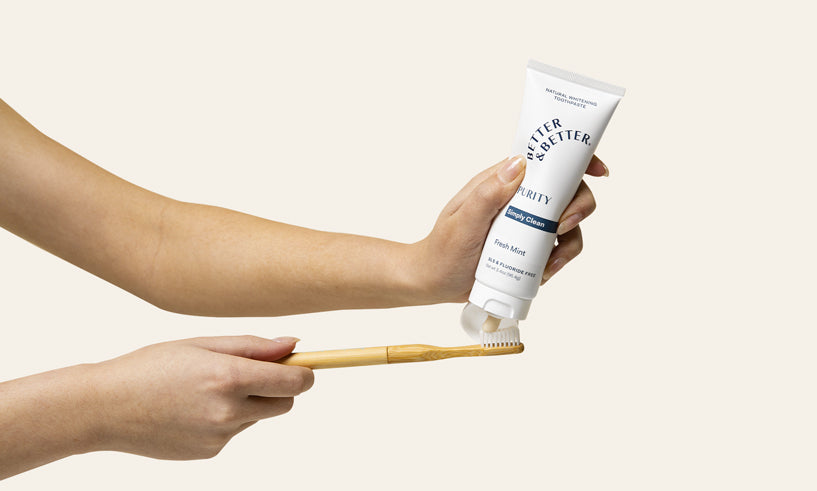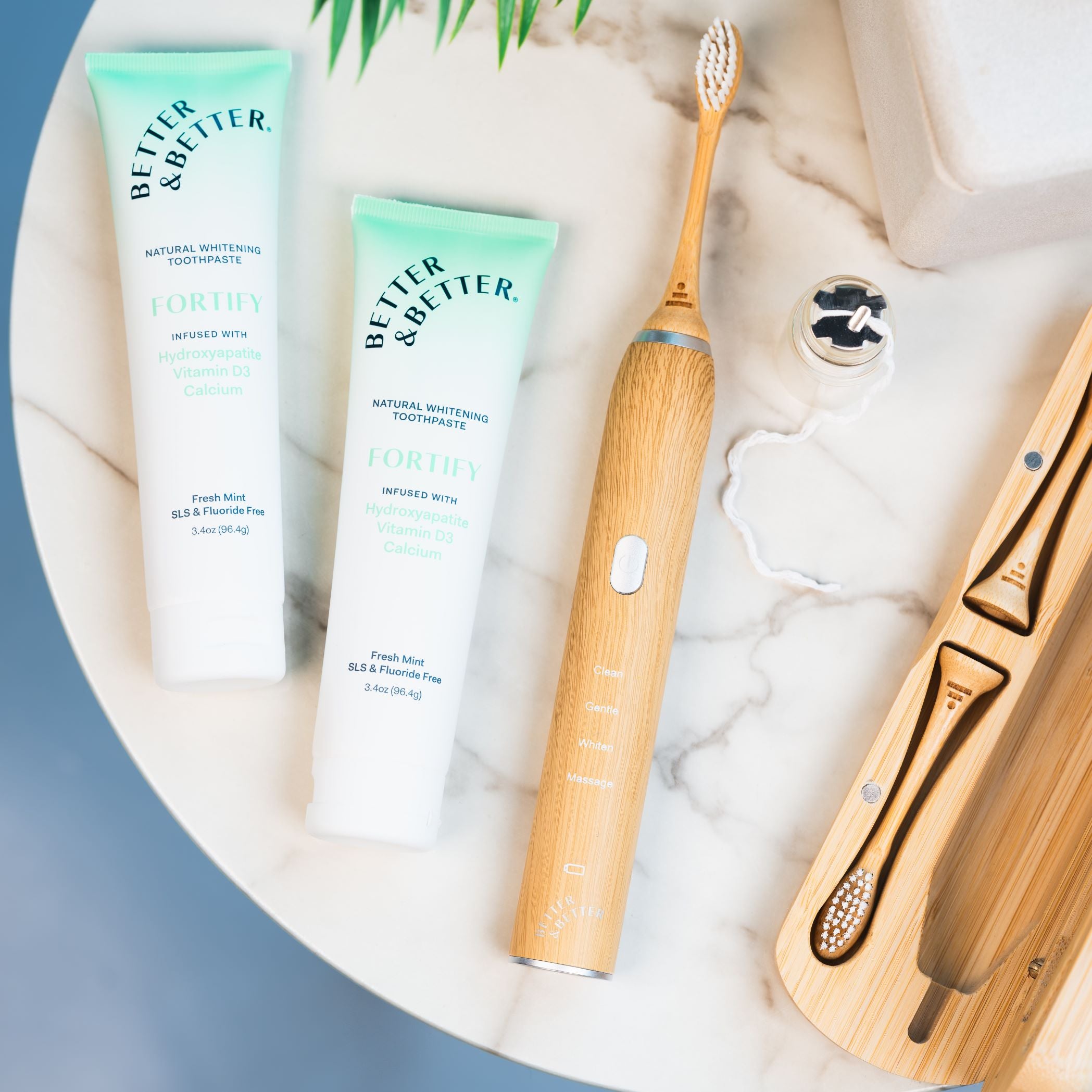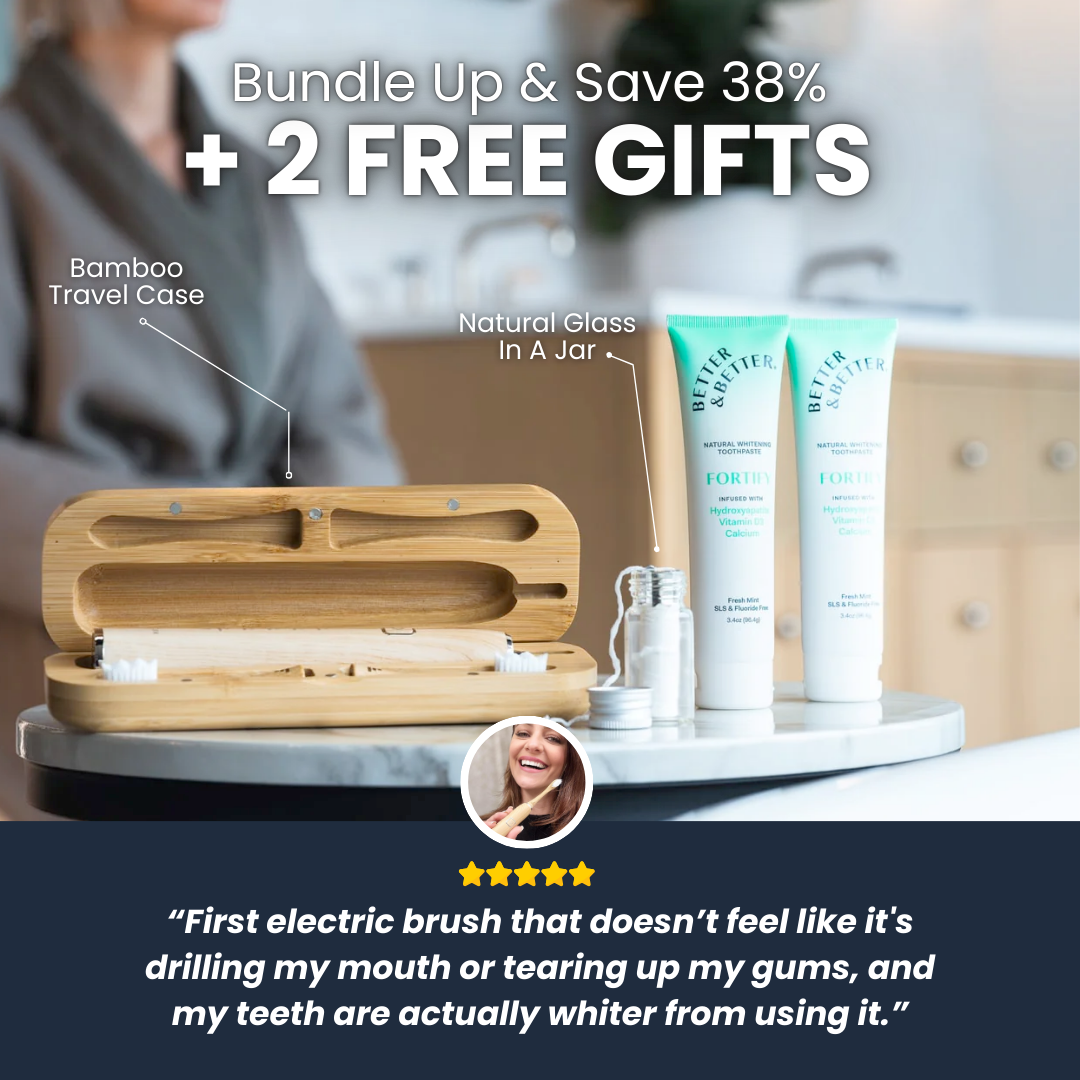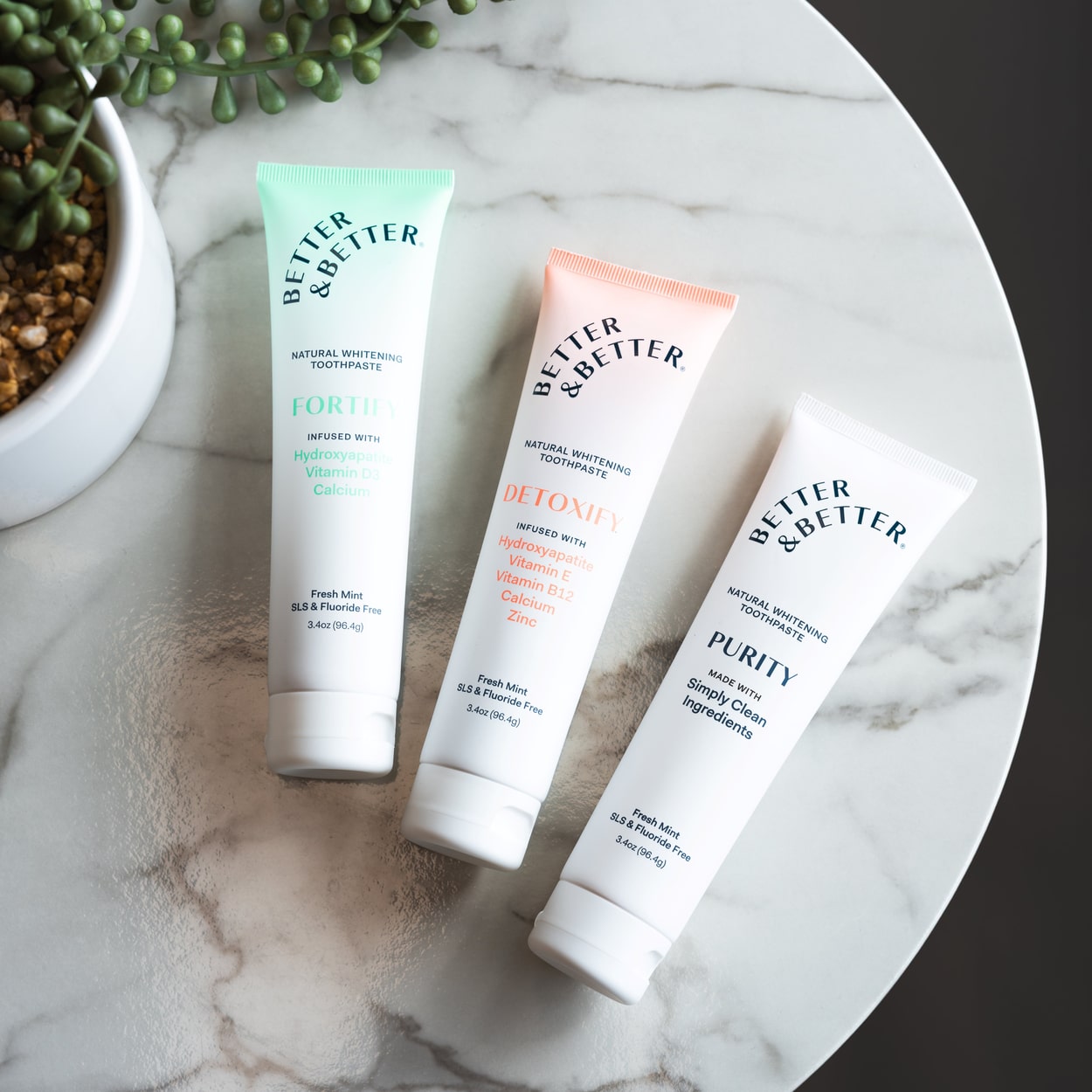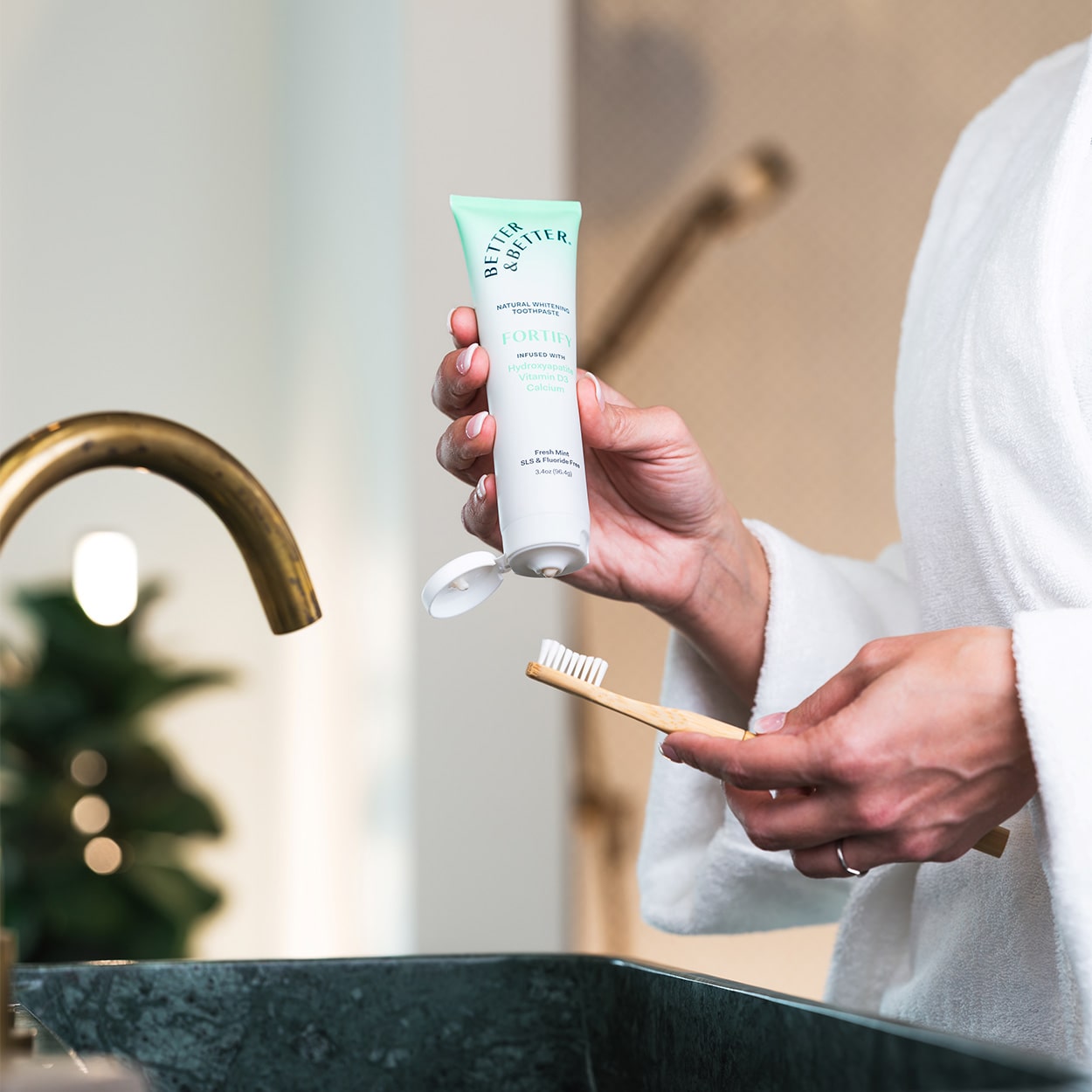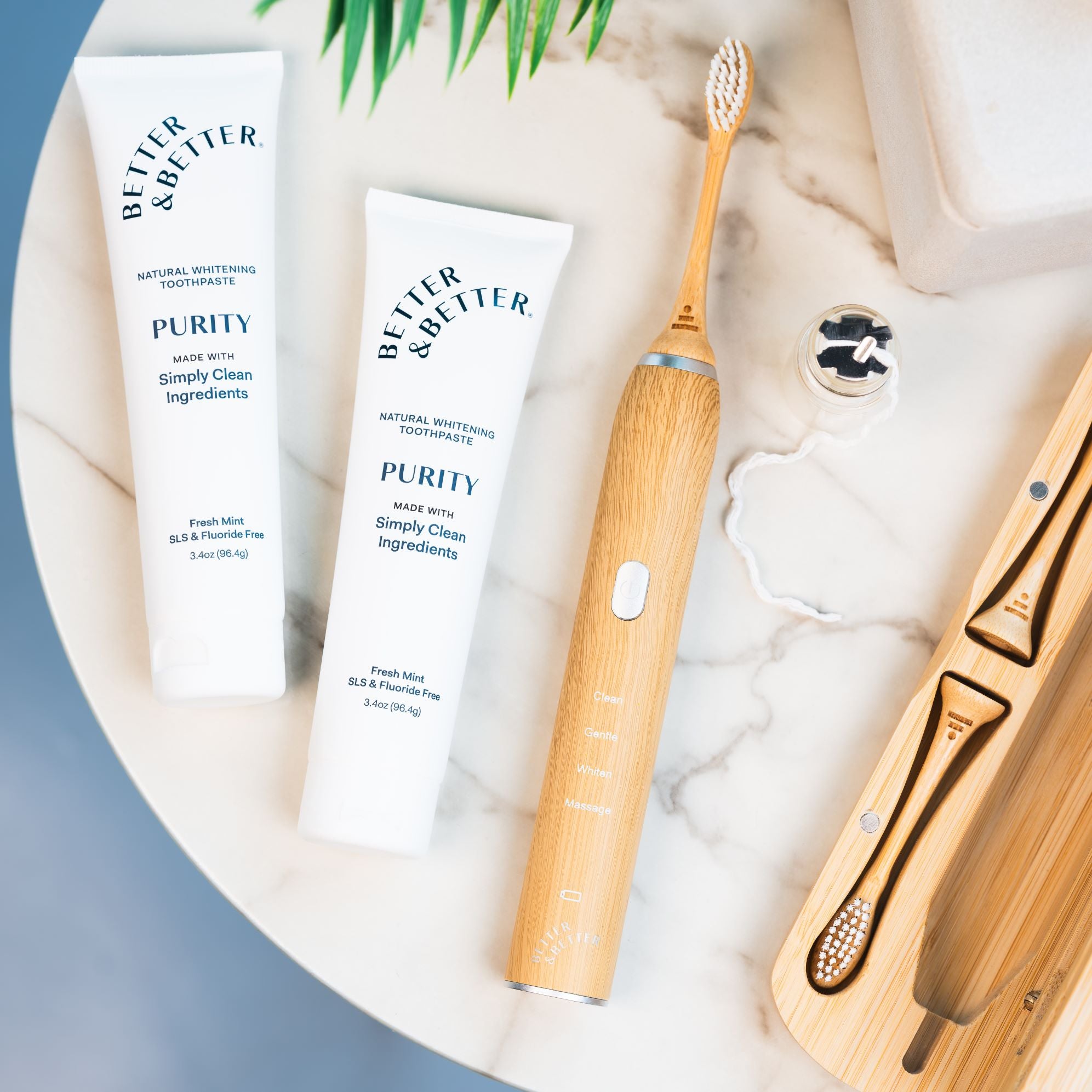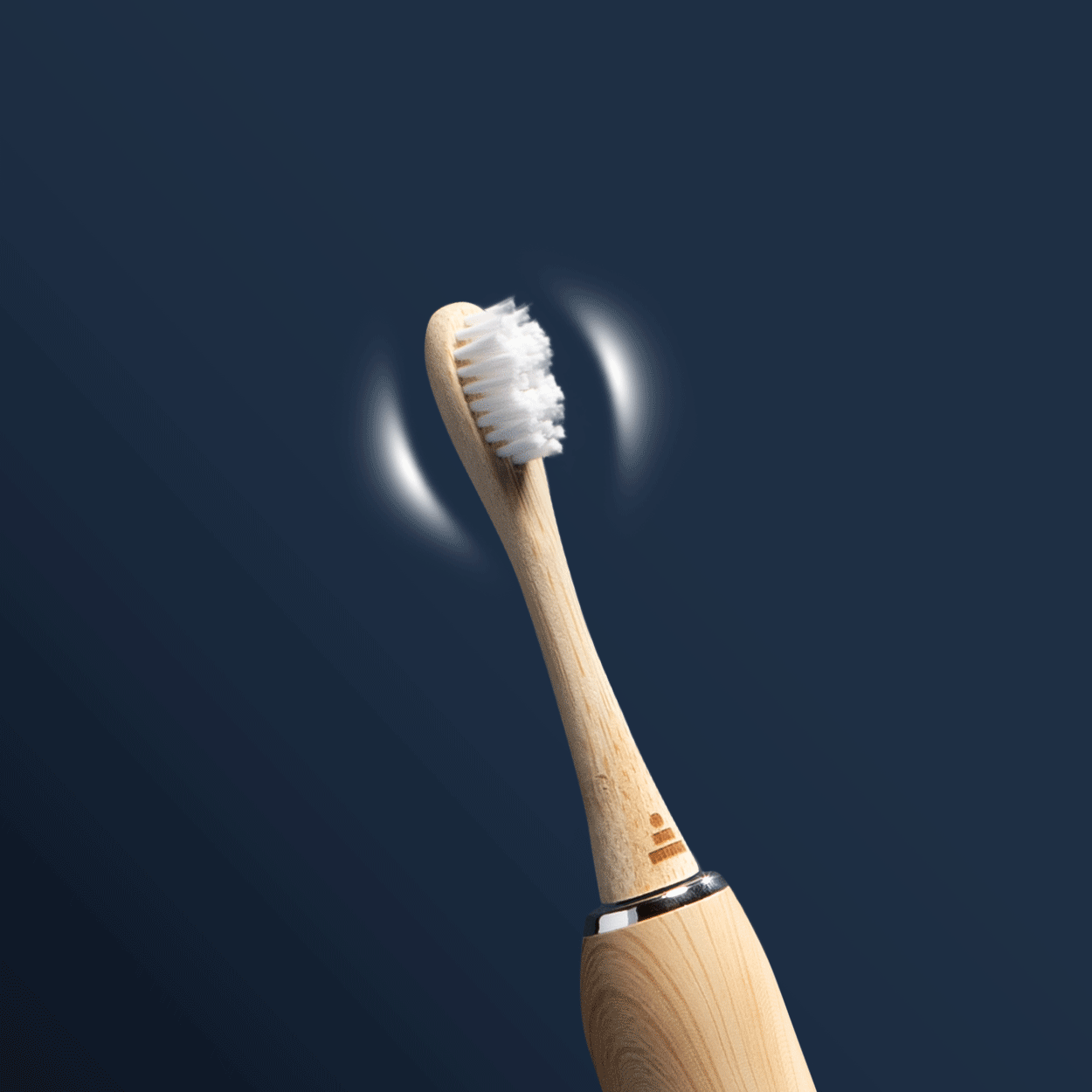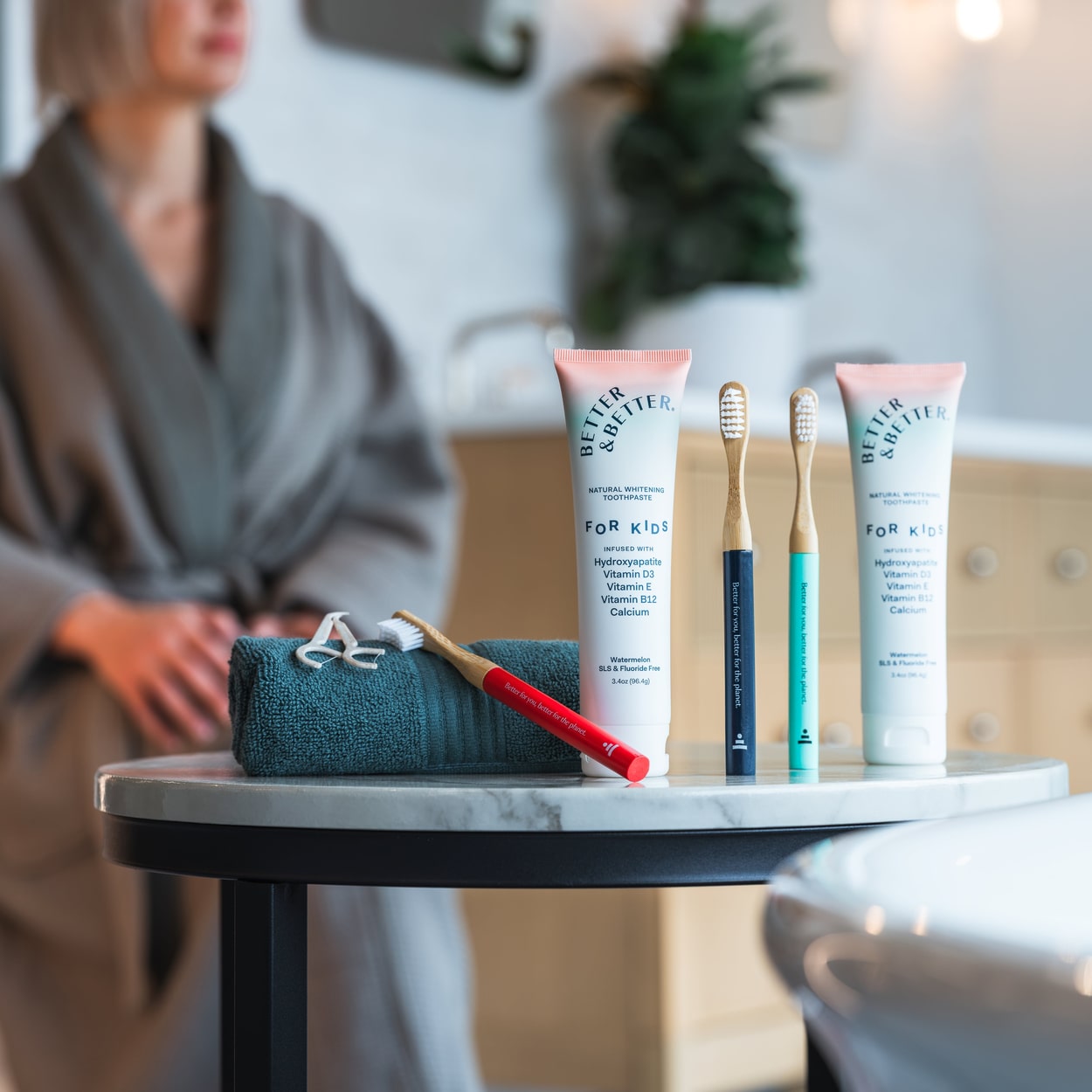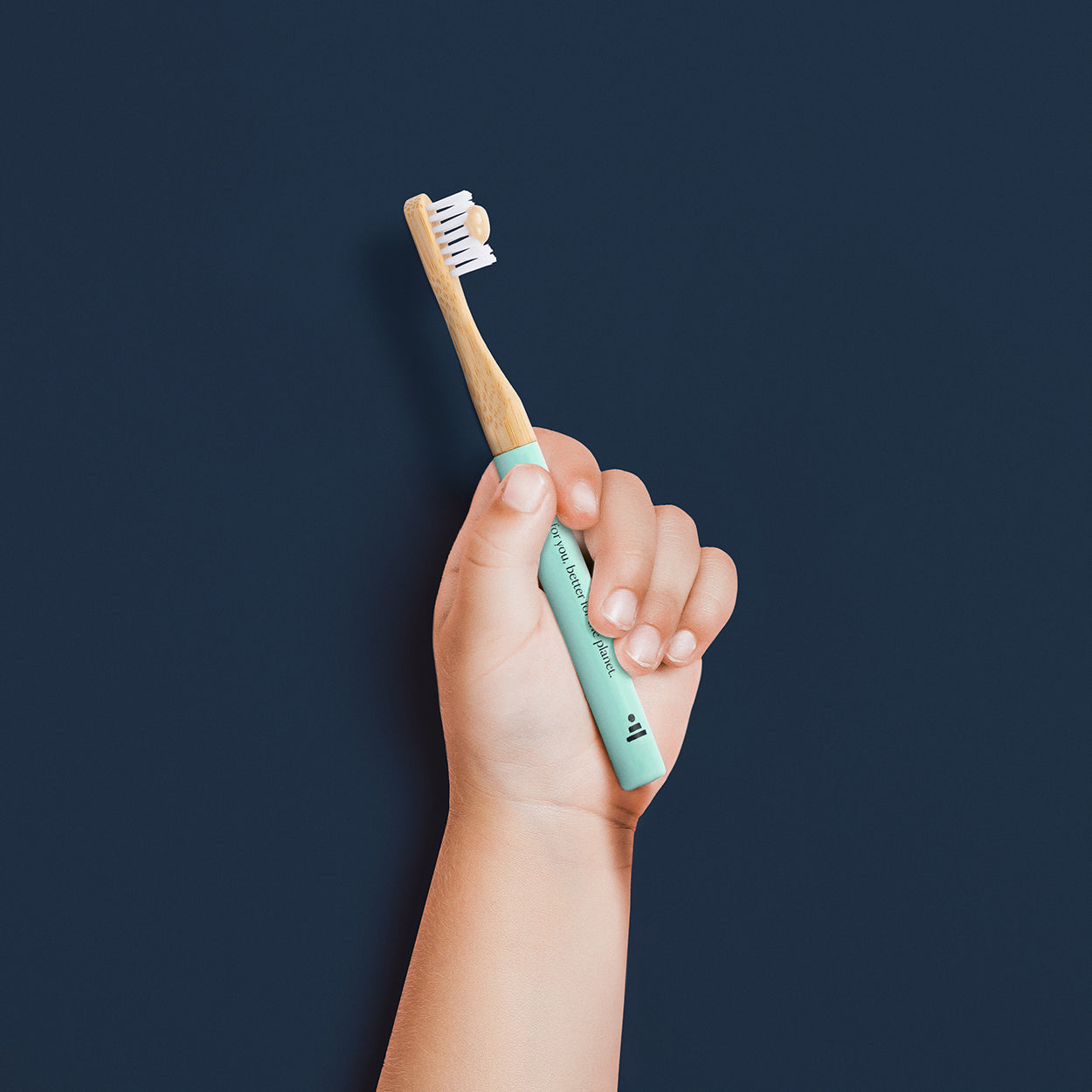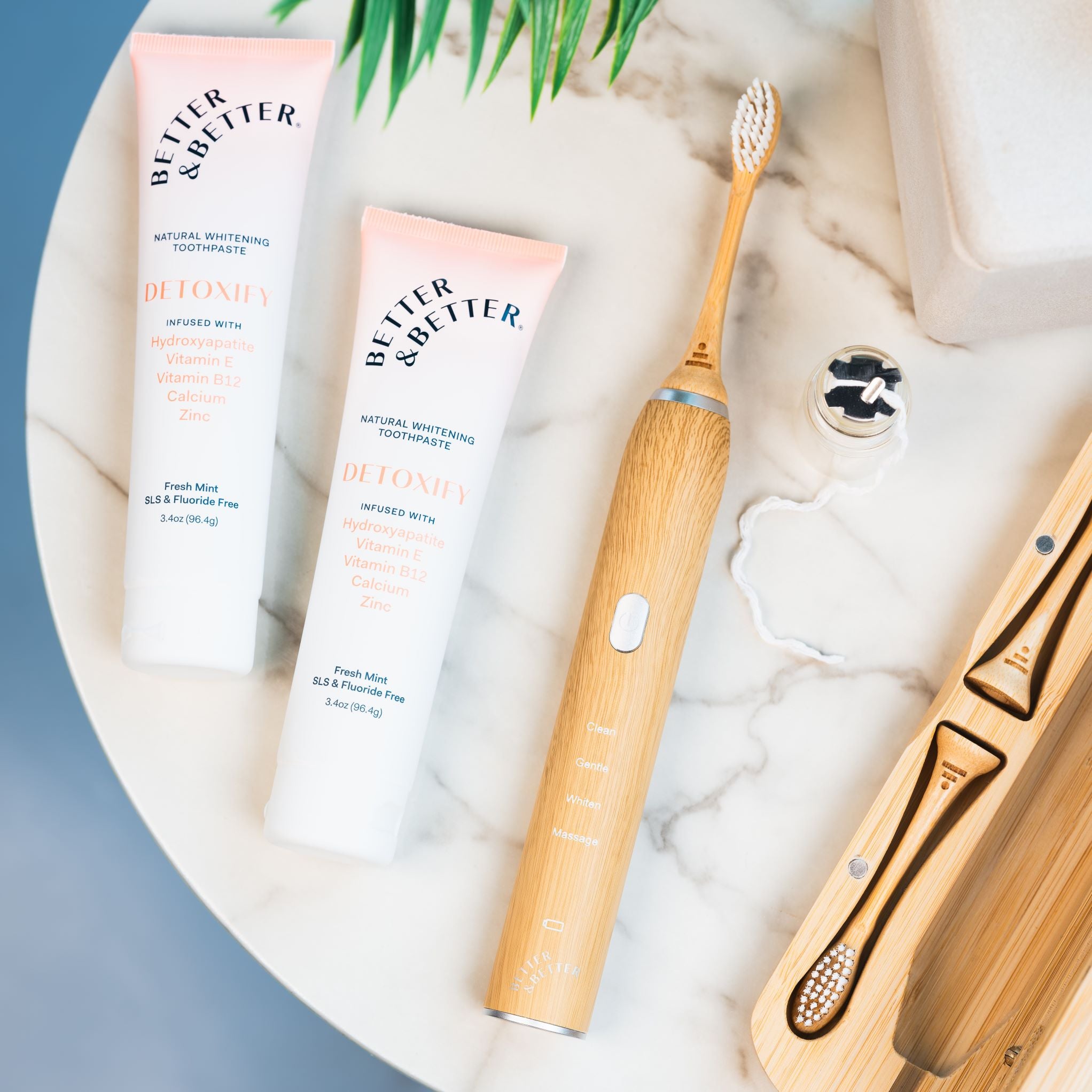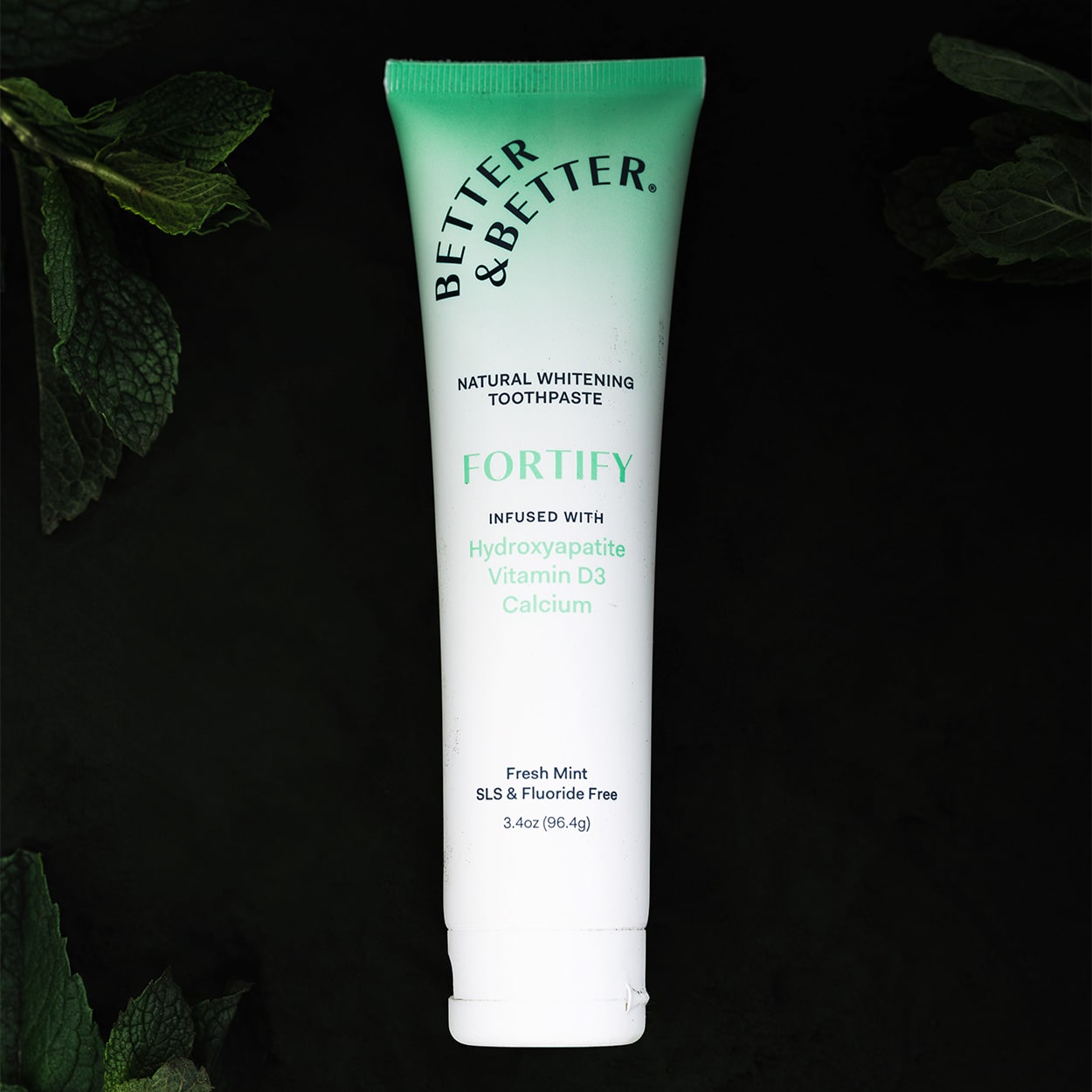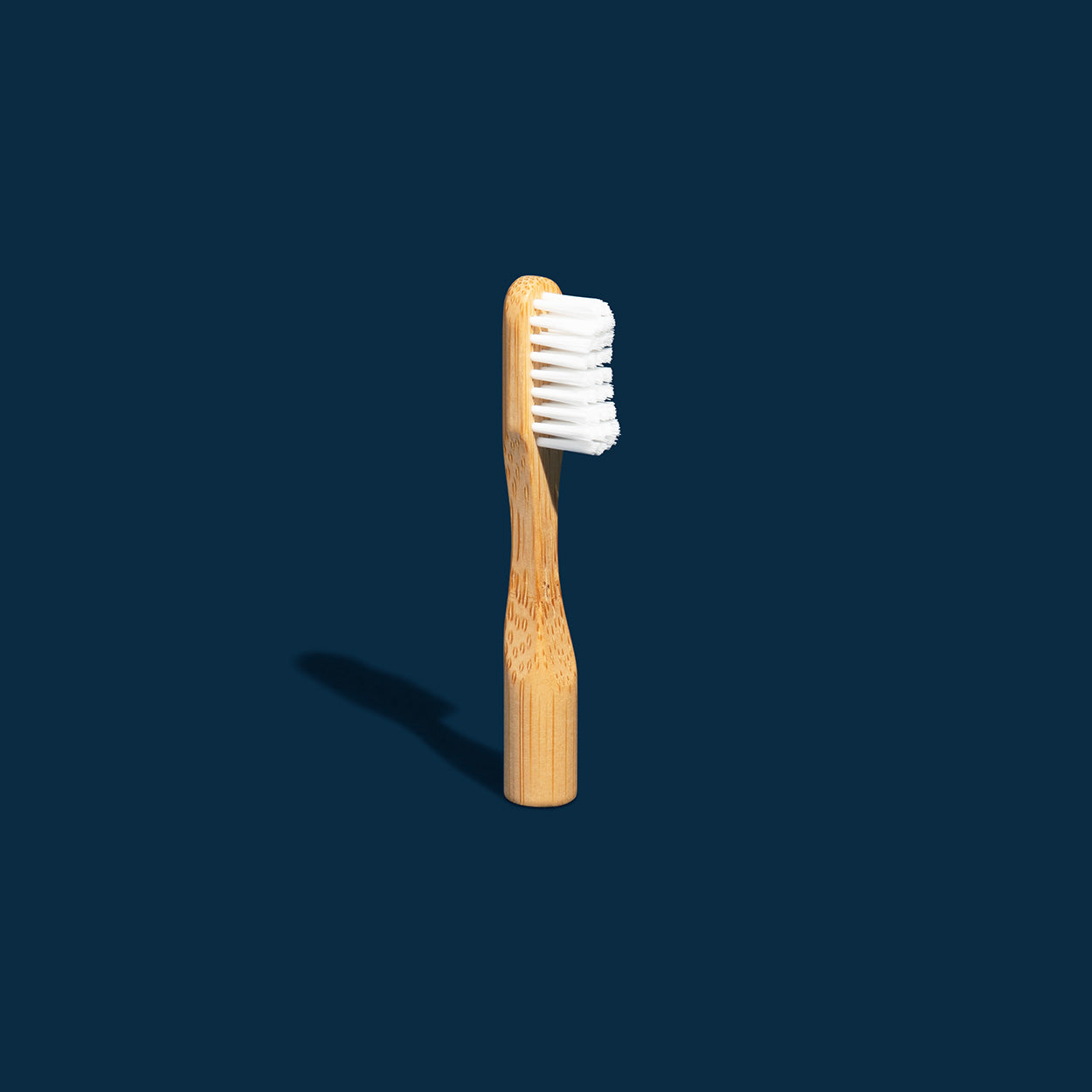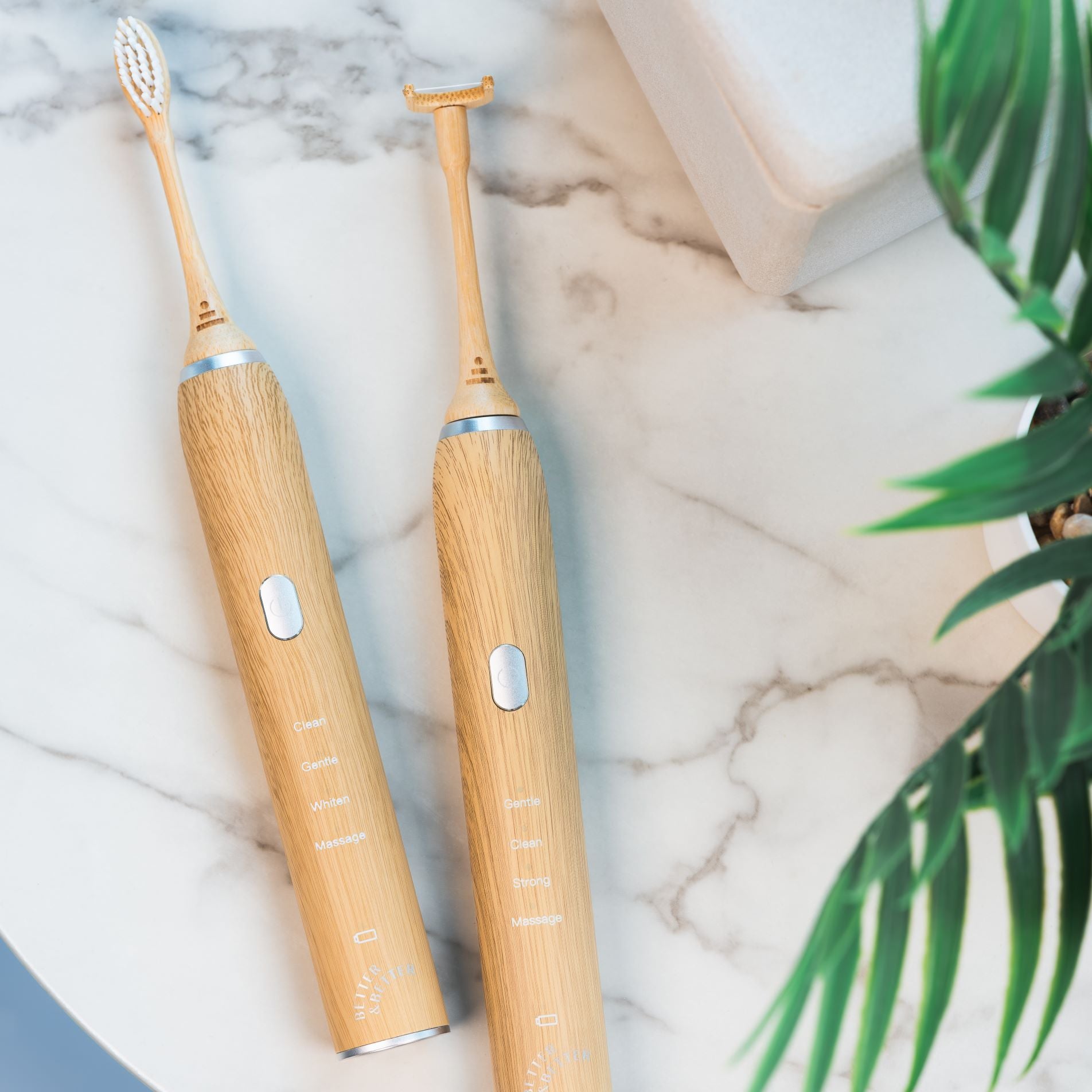Whether you’ve been a vegan for decades or you’re just testing the waters, you know that avoiding animal products doesn’t stop at mealtime. You also need to pay close attention to your clothes, cosmetics, and yes, even your toothpaste.
If you thought toothpaste was vegan by default, you’re not alone. Unfortunately, the vast majority of toothpaste in your local supermarket isn’t vegan. So, what ingredients are off-limits and how can you take care of your pearly whites without using any animal by-products?
You have better things to do than decipher ingredient lists on tubes of toothpaste. That’s why we compiled everything you need to know about vegan toothpaste so you can brush with confidence.
What Makes a Toothpaste Not Vegan?
At first glance, you might not expect to find animal products in your toothpaste (or dental floss). But upon closer inspection, that’s not always the case. Let’s take a closer look at some common ingredients you’ll find in popular toothpastes that are derived from animals.
Glycerin
Glycerin (also called glycerol) is a colorless, odorless polyol compound that’s often derived from animal fats. You’ll find it in all sorts of cosmetics, but it’s especially common in toothpaste because it prevents the product from drying out and helps it glide smoothly out of the tube. Glycerin is also used to preserve and sweeten toothpaste.
Keep in mind, glycerin can also be derived from vegetables. If that’s the case, it will be labeled “vegetable glycerin.” However, if the label doesn’t specify the type of glycerin, your best bet is to avoid that toothpaste.
Calcium Phosphate
Calcium phosphate is a naturally occurring compound that contains calcium and phosphorus. It’s the primary mineral that strengthens your teeth and bones. Calcium phosphate is used in toothpaste to remineralize enamel and protect the teeth from cavities and tooth decay. Unfortunately, calcium phosphate isn’t vegan since it’s derived primarily from ground animal bones.
Be sure not to confuse calcium phosphate with calcium carbonate. The latter still provides essential calcium to strengthen your teeth, but it comes from the minerals calcite and aragonite which are found in rocks rather than animals.
Propolis
Propolis is a natural waxy substance that honeybees create. It has been shown to fight bacteria and prevent gingivitis caused by dental plaque, according to a 2013 study. Propolis is a common ingredient in natural toothpaste and organic toothpaste, but since it comes from bees it doesn’t qualify as vegan.
Vegan toothpaste like Better & Better uses plant-based alternatives to the animal products mentioned above. If the label doesn’t specify “fully vegan” or “100% vegan,” then it most likely isn’t.
Alright, that’s enough biology for today. Let’s move on to another ethical issue with toothpaste: animal testing.
Vegan Toothpaste vs. Cruelty-Free Toothpaste: What’s the Difference?
It’s tempting to assume that if a toothpaste is vegan, it’s also cruelty-free. That’s not always the case. There are a couple of ways animal testing is involved with making toothpaste.
For starters, a lot of popular brands use artificial colors and dyes to give toothpaste an aqua or bright white hue that we associate with cleanliness (fun fact: that’s not the real color of toothpaste, especially after the ingredients are mixed together). These artificial colors are sometimes tested on animals, which is why vegans often avoid them.
Many leading toothpaste brands also test their formulas on animals, which is especially frustrating when those chemicals are already known to be safe for humans to use.
Keep in mind, even if a toothpaste is vegan and cruelty-free, corporations may still use animal products and animal testing for other products they manufacture. That’s why it’s important to choose brands that practice what they preach all the time—not just when it’s convenient for the marketing department.
Now that you know how to choose an ethical toothpaste, you’re probably wondering: does it produce the same results?
Is Vegan Toothpaste as Good for Your Teeth as Normal Toothpaste?
You bet. Vegan toothpaste is just as beneficial for your oral health as traditional toothpaste like Colgate or Crest. Rest assured that you don’t need a single animal product to whiten your teeth, freshen your breath, remove plaque, and fight cavities.
Vegan toothpaste like Better & Better uses ingredients like vegetable glycerin, sodium bicarbonate (baking soda), calcium carbonate, coconut oil, and xylitol to keep your teeth—and overall oral health—in tip-top shape.

In addition to giving you the same benefits, vegan toothpaste also gives you that signature minty fresh taste from spearmint, peppermint, menthol, and stevia.
What to Look for in a Vegan Toothpaste
Rather than Googling everything on the ingredient list, there are two primary qualifications you should look for when choosing a plant-based toothpaste.
First and foremost, make sure it’s 100% vegan, not just “natural” or “organic.” This ensures that the formula doesn’t contain any of the animal byproducts we talked about earlier.
Second, look for the Leaping Bunny certification, which verifies that the manufacturer doesn’t test on animals. The Leaping Bunny is the most trusted cruelty-free certification for non-animal tested products.
Vegan Toothpaste Isn’t Just for Vegans
Plant-based toothpaste is essential for the millions of people who live a vegan lifestyle. But even if you don’t fall into that group, using a vegan toothpaste like Better & Better is an easy way to upgrade your oral care routine.
On top of being 100% vegan and cruelty-free, our toothpaste formulas are fluoride-free and don’t have any parabens, GMOs, sodium lauryl sulfate (SLS), triclosan, gluten, or carrageenan. Toothpaste has been laden with junk for decades, so we nixed the nasty ingredients and stripped it down to the essentials.
Whether you’re a vegan or not, your teeth will thank you.


